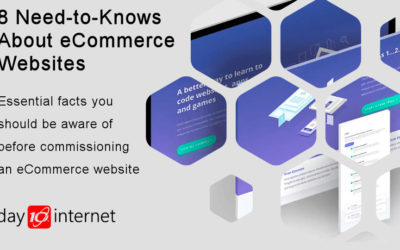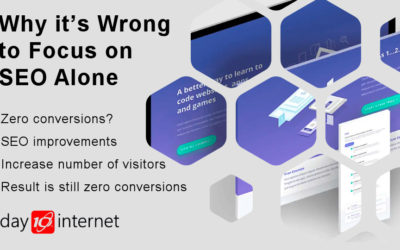A Guide for Busy Business People
Are you feeling lost when it comes to search engines? Don’t worry, you’re not alone! With the ever-changing digital landscape, it’s essential for businesses to optimize their websites to rank higher and get noticed by search engines like Google, Bing, and Yahoo.
But don’t worry, because in this blog post, I’m going to break it down into simple steps, so you can give your website the visibility it deserves. Let’s dive in!
Get Inside Your Audience’s Head
First things first, put yourself in your customers’ shoes. What would they search for to find a business like yours? These are your keywords! Make a list of relevant terms and phrases, and sprinkle them throughout your website’s content.
Be sure to include keywords in your page titles, headings, and meta descriptions (the short blurbs that appear in search results). But remember, don’t go overboard with the keywords; write for humans, not just search engines!
Create Engaging Content
Content is king! Search engines love fresh, relevant, and high-quality content. So, focus on creating engaging blog posts, articles, videos, and infographics that provide value to your audience. Share industry insights, answer frequently asked questions, and offer solutions to common problems.
When your content is valuable and shareable, it increases your chances of getting backlinks (other websites linking to yours), which is like a virtual thumbs-up in the eyes of search engines.
Optimize Your Website’s Structure
A well-organized website structure helps search engines navigate and index your pages more effectively. Use clear and descriptive URLs, and organize your content into categories and subcategories.
Create a sitemap, which is like a roadmap for search engines, guiding them to all the pages on your site.
And don’t forget about internal linking! Linking relevant pages within your website helps search engines understand your content better and improves user experience.
Speed Up Your Load Time
In today’s fast-paced digital world, speed matters! Slow-loading websites not only frustrate users but also get penalized by search engines. Optimize your website’s performance by compressing images, minifying code, and leveraging browser caching. If you’re not tech-savvy, don’t worry! Content delivery networks (CDNs) and caching plugins can help do the trick for you.
Mobile-Friendly is a Must
Did you know that more than half of all internet traffic comes from mobile devices? That’s why having a mobile-friendly website is no longer optional; it’s a necessity. Ensure your website is responsive and adapts seamlessly to different screen sizes.
Test it on various devices to make sure everything looks and functions perfectly. Mobile-friendliness is not only appreciated by search engines but also by your mobile-savvy customers.
Build Relationships, Gain Backlinks
Remember when we talked about backlinks earlier? Well, here’s how you can get them. Build relationships with other businesses, influencers, and industry leaders. Engage with them on social media, collaborate on guest blog posts or podcasts, and exchange links. When credible websites link to your content, it signals to search engines that your website is trustworthy and authoritative.
Monitor and Analyze
Last but not least, keep an eye on your website’s performance. Use tools like Google Analytics to track your website’s traffic, bounce rate, and user behavior. Monitor your keyword rankings and identify areas for improvement. Regularly review your SEO strategy and make adjustments as needed.
In Conclusion
Remember, optimizing your website for search engines is an ongoing process, so stay up to date with the latest trends and algorithm changes. By implementing these tips and tricks, you’ll improve your website’s visibility, attract more visitors, and ultimately boost your business.






